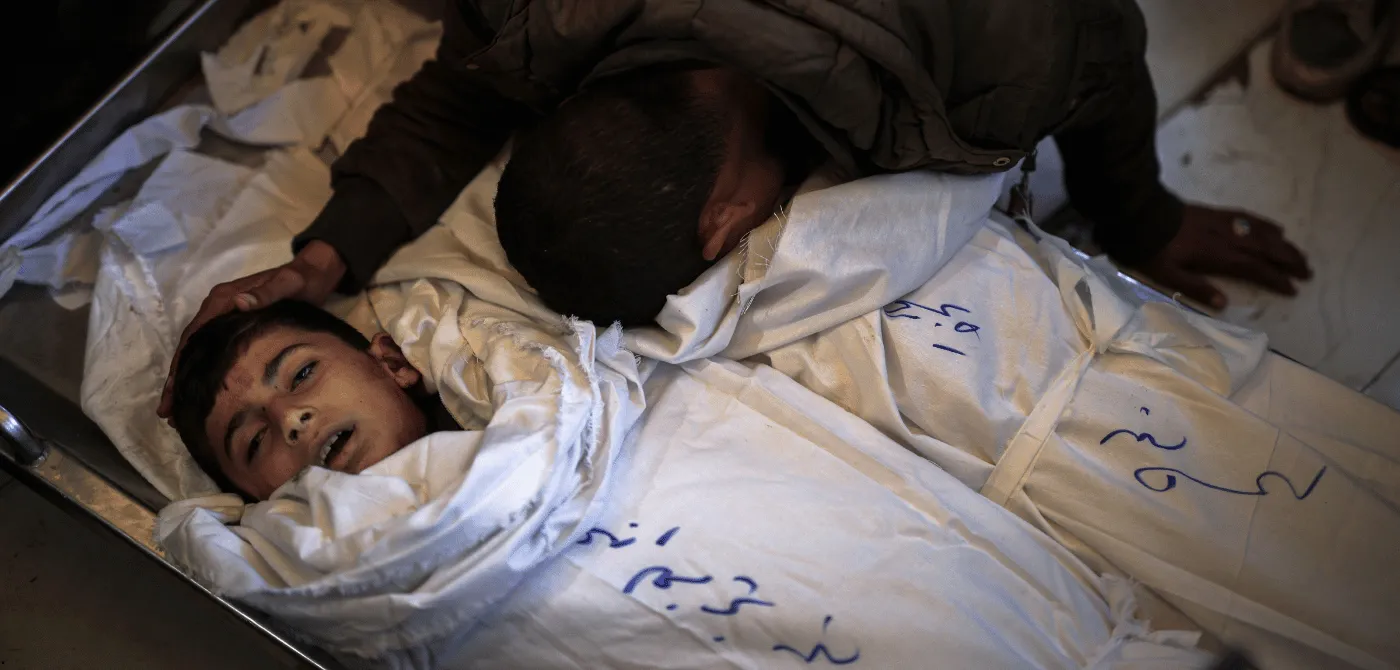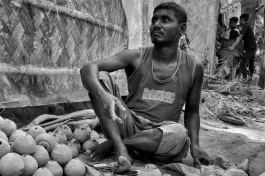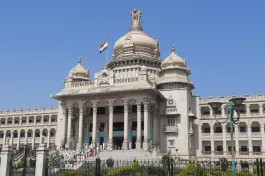A genocide is taking place in slow motion in Gaza in full view of the world. Despite overwhelming evidence – photos, videos, and eyewitness accounts – documenting the destruction of essential conditions for life, Western political and media voices are downplaying the crisis, rationalising the widespread devastation and displacement of the population as 'tragic but necessary'. Israeli forces are killing and maiming thousands of women and children every day, starving them for good measure, all for the cause of 'a just war' and a secure Israel.
Is there an endgame to this genocide? What does Israel aim to do, and how will the world respond to it? Does the latest announcement of a ceasefire in Lebanon portend a change in Israel's strategy? The answers are not easy to come by, but we aim to contextualise different dimensions of this tragedy of violence and denial.
International response
Israel and its military well understand that with effective propaganda and denial, they can get away with actions that clearly constitute serious war crimes and crimes against humanity. They face no sanctions or penalties as long as they have the support of their main allies, the United States, Britain, and the European Union. The comprador Arab regimes are equally indifferent, barring making occasional noises. Some countries, such as South Africa and Brazil, have publicly taken up the Palestinian cause in international forums. More countries in the global South have joined them, but key countries such as China, Russia, and India have been lukewarm in their response.
With international journalists effectively barred from Gaza, reporting of the ongoing catastrophe depends heavily on Palestinian journalists and social media activists, including young men and women, working under extremely dangerous conditions in Gaza and the West Bank. They are the witnesses and record keepers of the tragedy that is taking place.
Over the years, Israel’s image in the West and elsewhere has been built around victimhood. For Western nations, Israel’s survival as a Jewish state was a historical recompense for the victims of the Nazi Holocaust.
Even as United Nations (UN) agencies and non-governmental organisations (NGOs) document this humanitarian disaster, they are powerless to obtain meaningful international action. Across the globe, including North America and Europe, students, activists, and civil society groups are coming out in large numbers to protest, but with little impact on state policy. With unyielding Western support, Israel operates with impunity, free to carry out whatever it has in mind for Gaza.
Historical context
The Israeli-Palestinian conflict is deeply rooted, with both sides shaped by historical traumas and a perpetual struggle for security and sovereignty. Over the years, Israel’s image in the West and elsewhere has been built around victimhood. For Western nations, Israel’s survival as a Jewish state was a historical recompense for the victims of the Nazi Holocaust.
In Germany, the safety and security of Israel is a Staatsräison (a reason of state), as Germany’s historic responsibility arising from its role in the Holocaust, though it is neither a part of the German constitution nor a legal obligation. Interestingly, this does not extend to other victims of the Holocaust, like the Roma or Sinti communities of Europe. In the West, this moral obligation is conflated with uncritical support for all Israel’s actions, including attacks on Palestinians and air strikes and targeted assassinations in Syria, Iran, and Lebanon.
Israel requires the unconditional support of the US and Western nations to achieve its objectives. It has leveraged a sophisticated propaganda network, promoting selective narratives and misinformation to gaslight the public.
The Hamas attack on Israeli civilians received near universal condemnation. Initially, Israel’s actions post 7 October were justified as some combination of retaliation, self-defence, or deterrence against Palestinian militants. But as the response evolved into systematic targeting and destruction of civilian life and infrastructure, its magnitude and disproportionality could no longer be defended as acts of military necessity. As the scale of destruction intensified, the declared goals shifted.
Israel’s stated intent is to dismantle the terrorist infrastructure in Gaza. But it is increasingly clear from the drumbeat of voices on the Israeli far right that the actual objective is different. While revenge and retribution are part of the collective punishment being inflicted on the Palestinian people, genocide and forcible expulsion are the means to an end, which is the annexation of the whole or part of Gaza in pursuit of the dream of a Greater Israel.
Manufacturing consent
Israel requires the unconditional support of the US and Western nations to achieve its objectives. It has leveraged a sophisticated propaganda network, promoting selective narratives and misinformation to gaslight the public, 1Gaslighting refers to the psychological manipulation of emotions and the altering of perceptions of reality from a 1938 British play, later made into a film in 1944. Though originally applied to individual relationships, it is also used in political contexts where political figures or groups use lies, denial or manipulation of information with the intention of forcing people to question what they have perceived to be true. and manipulate opinion to manufacture consent for its genocidal acts. 2Manufacturing consent is about a propaganda model of news gathering and dissemination, where an elite consensus largely structures all facets of news, and the mass media uses consensus assumptions to frame narratives (Chomsky and Herman 2008). The task is made easier when large sections of the media and politicians in Western countries, especially in the US, have been ideologically conditioned by powerful lobbies to be its willing accomplices.
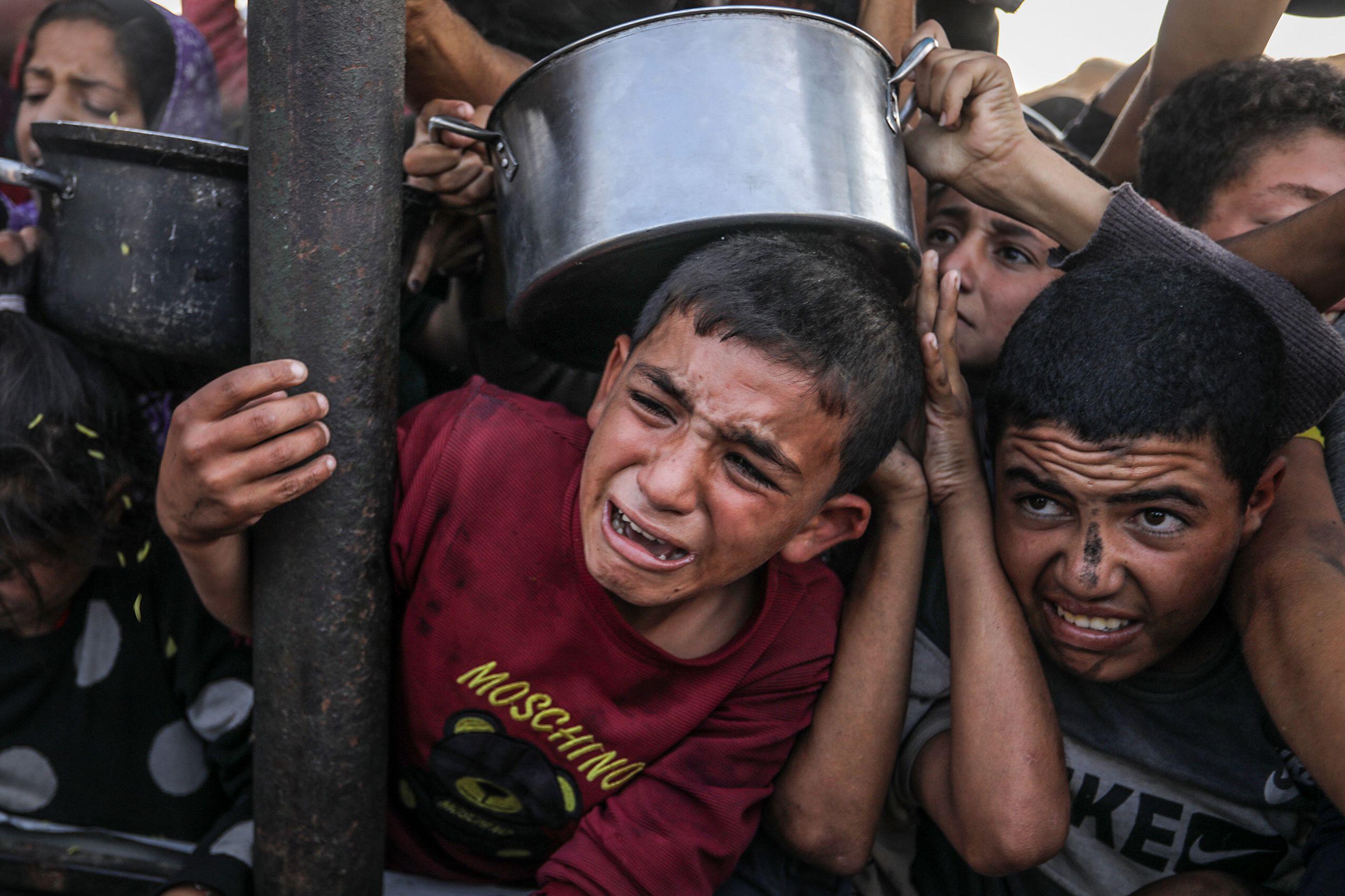
Israel’s allies continue to show a readiness to overlook the almost daily perpetration of serious war crimes. There are moments of disquiet occasioned by especially gruesome incidents, like the burning alive of patients in an Israeli airstrike on Gaza’s al-Aqsa hospital. But these are quickly reframed with 'human shield' narratives, despite the absence of credible evidence.
Manufacturing consent for its behaviour is easier when Israel is portrayed as a victim. For some years, the perception of Israel as an apartheid state, with starkly different rights and privileges for the Jewish population compared with the Palestinians in the Occupied Territories, has gained ground. The events of 7 October provided an opportunity to reclaim victimhood for Israel. The victim gets the right to exact revenge and retribution. But victimhood was not enough to justify the utter brutality of the war on Gaza. Much more was required to solidify consent.
Dehumanising the enemy
Media narratives have been used by Israel to perpetuate depicting Palestinians in a dehumanising manner. Following the 7 October Hamas attack, a flood of images, stories, and rumours was circulated on social media and in news media around the world. Western news outlets uncritically repeated and amplified Israeli accounts of Hamas’ atrocities.
Amongst the many horrific stories, the beheading of 40 babies was highlighted for its savagery. This was reported widely by Israeli and major Western media and repeated by US President Joe Biden, who falsely claimed to have personally seen photographs of the barbarity. The story turned out to be false, but misinformation had already done its job.
Another high-profile example was a December 2023 New York Times investigation, which alleged a pattern of systematic sexual violence and mass rape by Hamas fighters. The report, by Pulitzer Prize-winning journalist Jeffrey Gettleman with Israeli co-authors, cited GPS data, video footage, and interviews with witnesses and officials in support of its findings. This story was predictably picked up and amplified across the world as further evidence of the fiendishly brutal nature of Hamas’ attack on an innocent civilian population.
Among the many horrific stories, the beheading of 40 babies was highlighted for its savagery. This was reported widely by Israeli and major Western media […] The story turned out to be false, but misinformation had already done its job.
It was also projected as a vindication of Israel’s claims of victimhood amidst the indifference of the international community. The story came out at a time of heightening unease around the world over the growing death and destruction in Gaza and the forcible displacement of 90% of the population.
However, within days, the story began to unravel. Independent media organisations such as the Intercept, the Electronic Intifada, Mondoweiss, and the Grayzone raised disturbing questions about the report’s accuracy, revealing serious discrepancies in the evidence and testimonies from unreliable or dishonest sources. One victim and the family of two other victims identified in the report directly refuted the sexual assault claims. The New York Times ultimately updated its story, acknowledging the lack of corroborative forensic evidence.
Despite this, Sheryl Sandberg, former chief operating officer of Meta (previously Facebook), produced a documentary called Screams before Silence, echoing The New York Times report and repeating the claims of mass rape made by eyewitnesses whose testimony had been previously challenged. Nevertheless, the film was promoted by senior political figures in the US and screened in the White House by Vice-President Kamala Harris.
Such examples illustrate how the media narrative promoted Israeli propaganda to influence public opinion and reinforce the perception of Hamas (and Palestinians by extension) as barbaric and subhuman, thereby positioning Israeli military action in Gaza as a necessary, if regrettable, response. Despite much of the information proving to be false or misleading – a Times (London) investigation found more misinformation than evidence about the allegations of mass sexual violence – Israel continues to dehumanise the Palestinians to justify its relentless campaign against them.
Justifying the destruction
Healthcare
The first major assault on Gaza’s healthcare system began early, with a 15 November 2023 raid on Al-Shifa, the territory’s largest hospital, for allegedly housing the Hamas operational command centre. Thousands of civilians were trapped, and dozens of patients were killed, including newborn babies. Even the Washington Post found no evidence to support the Israeli claim. Al-Shifa was raided once again in March and destroyed. The Palestinians who survived the assault called it a place of death.
Foreign aid workers and doctors volunteering at Gaza’s hospitals have publicly contradicted the Israeli claim, but the war on the territory’s health infrastructure continues unabated.
A recent report by the Associated Press found that Israel presented little or no evidence to support its claims of a significant Hamas presence to justify further invasions of Gaza’s hospitals (al-Awda, Indonesian, and Kamal Adwan). In total disregard for international humanitarian law, it has besieged and raided Gaza’s hospitals. It justifies these attacks by spreading misinformation that Hamas fighters shelter in these facilities.
Foreign aid workers and doctors volunteering at Gaza’s hospitals have publicly contradicted the Israeli claim, but the war on the territory’s health infrastructure continues unabated. More than half of the hospitals there have been destroyed or rendered non-functional. The destruction of medical infrastructure appears to be an essential part of the genocide in Gaza.
Discrediting UNRWA
Israel has also targeted the United Nations Relief and Works Agency (UNRWA), accusing it of being infiltrated by Hamas and implicating its employees in the 7 October attack which induced 16 major donor countries to cut vital funding. An internal UN investigation and an independent commission essentially cleared UNRWA of these accusations, and all countries, barring the US, eventually restored their funding. Israel continues its blatant attempts to cripple UNRWA, most recently by legally banning it from operating in Israel and occupied East Jerusalem.
UNRWA plays “an indispensable and irreplaceable role” in running critical aid services in Gaza. This repeated and targeted attempt to cripple its activities will have catastrophic consequences for the people of Gaza.
Justifying crimes against humanity
In a similar vein, Israel has used the excuses of infiltration by Hamas or Hamas using civilians as shields in its propaganda to justify many atrocities that would otherwise have been condemned as violations of international law. This includes attacks on civilian safe zones; strikes on schools; the arbitrary detentions, torture, and killing of Palestinian healthcare workers; the deliberate targeting of journalists; and the murder of children by gunshots to the head. The list goes on. The propaganda techniques may vary—misinformation, disinformation, inaccurate, misleading, or selective information, and denial—but the intention is to manipulate public opinion while the genocide continues.
Social media more reliable
Independent reporting of what is happening in Gaza has been difficult as Israel tightly controls access by foreign journalists. The traditional Western media is largely reliant on information from Israeli sources and spokespersons.
The inability to tightly control the narrative through traditional media has cost public support for Israel and its actions, especially amongst the younger generation.
However, Palestinian journalists and social media activists reporting on the ground in Gaza in extremely dire conditions have connected directly to a wider international audience via online social platforms. Despite social media giant Meta’s suppression efforts, global citizens and independent media have succeeded in bypassing major media outlets to get authentic, live-streamed audio and video reports that present a different reality. The scope of the reach is indeed unprecedented in the 57 years that Israel has been militarily occupying the Palestinian territories.
The inability to tightly control the narrative through traditional media has cost public support for Israel and its actions, especially amongst the younger generation. In a leaked audio recording, pro-Israel lobbyist and head of the Anti-Defamation League, Jonathan Greenblatt, is heard saying, “We have a TikTok problem.”
Breakdown of rules-based system
The catastrophe in Gaza is testing the post-World War II framework of international law and human rights. In December 2023, South Africa brought a case before the International Court of Justice (ICJ), alleging that Israeli actions in Gaza were in breach of the Genocide Convention. After hearing both sides, the ICJ agreed that there was a plausible case for genocide and issued several rulings in January, March, and May 2024. 3The ICJ ordered Israel to ensure that it does not commit acts of killing or inflict conditions on the Palestinians in Gaza that could bring about their end.
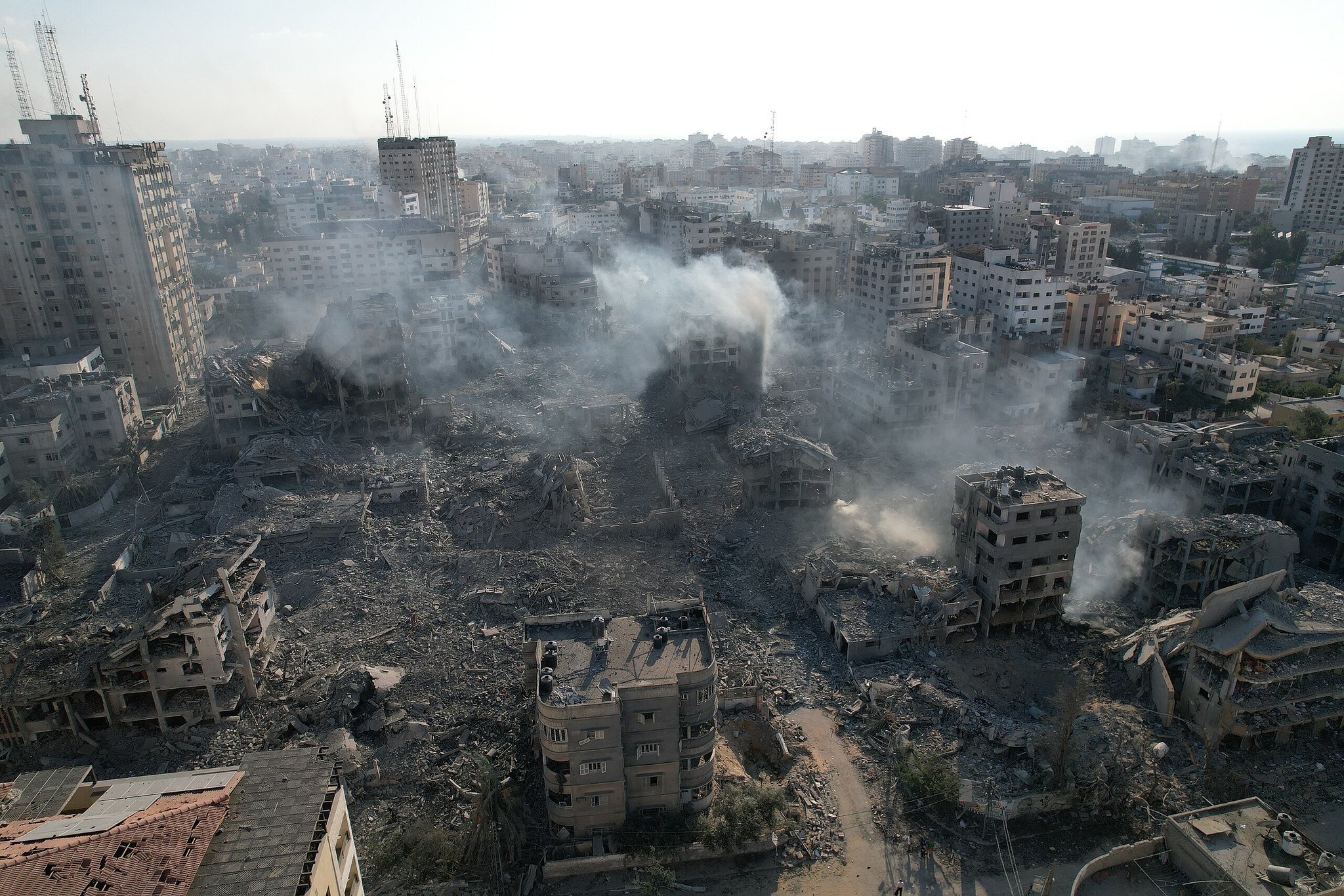
Though paying lip service to international humanitarian law, Israel has, in practice, defied all the court’s orders. Its military continues to rain death and destruction on civilians in Gaza. Another International Court of Justice advisory opinion issued on 19 July 2024, in response to a UN General Assembly request, found that Israel’s occupation of Palestinian territory was illegal, requiring action by UN member states. The Israeli government immediately dismissed the ruling.
The International Criminal Court (ICC) at the Hague has faced similar challenges in holding Israel accountable. In May 2024, its Chief Prosecutor filed for arrest warrants against Hamas leaders (Yahya Sinwar, Mohammed Deif, and Ismail Haniyeh) and Israeli government officials (Benjamin Netanyahu and Yoav Gallant) for committing war crimes. However, the ICC has gone slow on the arrest warrants against the Israeli leaders, only issuing them on November 21 (almost 6 months after the application). In striking contrast, it issued an arrest warrant against Russian President Vladimir Putin within a month of the application. While the ICC did ultimately issue arrest warrants against Netanyahu and Gallant (and the Hamas commander Deif, whose presumed death could not yet be verified), it has faced direct and indirect pressure from both the US and Israel that held up the process, raising serious questions about the effectiveness and impartiality of the international justice system in enforcing international law.
Weaponising antisemitism
There have been an increasing number of demonstrations worldwide in response to Israel’s aggression in Gaza. These protests have been suppressed across North America and Europe by labelling them as antisemitic, even though there are many Jewish groups and individuals participating in them. The definition of antisemitism, which is a hate crime in many Western countries, has been brazenly distorted and weaponised to the extent that any protest against Zionism and Israel is robotically equated with a hate crime against the Jewish people.
By broadening the definition of antisemitism to include anti-Zionism, organisations such as the Anti-Defamation League portray pro-Palestinian demonstrations as a direct threat to Jewish students and communities, especially on university campuses in North America and Europe. The charge of antisemitism has been freely used to restrict meetings and demonstrations, prompt surveillance of pro-Palestine groups, and arrest protestors, professors, journalists, and academics, resulting in a chilling effect on protests against Israel.
The definition of antisemitism, which is a hate crime in many Western countries, has been brazenly distorted and weaponised to the extent that any protest against Zionism and Israel is robotically equated with a hate crime against the Jewish people.
A most egregious example of this occurred recently in Amsterdam when a violent clash between Israeli football fans and local residents of mainly Middle Eastern origin was depicted by the global media and a chorus of Western leaders as some kind of pogrom against the Jews. However, social media videos and eyewitnesses clearly established that the clash was caused by the racist and violent behaviour of Israeli hooligans. Football hooliganism is common in Europe, but this was perhaps the first time it became a major international news story of Jewish victimhood.
Politicians in the US and elsewhere are incorporating anti-Zionism as antisemitism into legislation. With these moves, lawmakers and the Zionist lobby are finding ways to criminalise any organised support for Palestine, such as movements like Boycott, Divestment and Sanctions (BDS) against Israel. The weaponisation of antisemitism serves to silence dissenting voices, which are growing in intensity and momentum. In other words, the charge of antisemitism provides cover for Israel to carry on with its genocide in Gaza.
Suffering of the people of Gaza
The scale of death and destruction in Gaza is staggering. By October 2024, reports indicated that more than 42,000 Palestinians had died, with 10,000 missing or presumed dead under the rubble. At least 13,000 children, including more than 700 babies, have been killed, many shot in the head and chest. More than 62,000 are reported to have died of starvation, while unknown numbers have died due to infectious diseases, maternal and neonatal deaths, and lack of access to medical care. Lancet estimates that up to 186,000 persons, or 8% of the total population of Gaza in 2022, have died.
No matter how many numbers are cited or how much is written about the destruction of life in Gaza, they fail to capture the true cost and the scale of human suffering.
The physical infrastructure of the Gaza Strip is in total collapse, and reconstruction could take years if not decades. The impact on housing, schools, hospitals, roads, sanitation, farms, agriculture, fishing, livestock, and business will be felt for generations to come. The devastation is so widespread that it has prompted allegations of urbicide, scholasticide, medicide, ecocide, and cultural genocide.
No matter how many numbers are cited or how much is written about the destruction of life in Gaza, they fail to capture the true cost and the scale of human suffering. Individual tales of tragedy, such as those of Mohammad Bhar, 4Mohammad Bhar was a 24-year-old young adult with Down’s syndrome and autism who was loved and cherished by his extended family of parents, grandparents, siblings, nieces, and nephews. He knew nothing but love and affection and was taught to call everyone “Habibi” (beloved). On 3 July, Israeli troops entered their home. Mohammad was forcibly separated from his family in the house and attacked by an IDF dog, which he kept calling “Habibi.” The family was driven from the house at gunpoint, and Mohammed was left alone to die. Khaled Joudeh, 5Khaled Joudeh lost his mother, father, older brother, and baby sister in an Israeli airstrike on 22 October 2023. Khaled remained brave after their deaths and tried to comfort his surviving seven-year-old younger brother, Tamer, who was badly injured with a broken back and a broken leg. It might be termed a mercy that Khaled, Tamer, as well as their two-year-old cousin Nada were killed in another Israeli strike on their family home on 9 January, a little over two months after their parents were killed. Hind Rajab, and Yazan Kafarneh, are heart-rending, but there are so many of them.
Israel’s endgame
The killing of Hamas leader Yahya Sinwar did not signal the end of Israel’s offensive. Instead, statements from Israeli leaders imply a plan for permanent occupation of Northern Gaza. Though denied by Benjamin Netanyahu, Israel Defence Forces (IDF) Brig Gen Itzik Cohen told reporters on 6 November that “there is no intention of allowing residents of the northern Gaza Strip to return to their homes”.
The IDF has intensified its assault on Northern Gaza to forcibly push the remaining Palestinians beyond the Netzarim corridor, a 6.5-kilometre road that runs across the Gaza strip just south of Gaza city from the Israeli border in the east to the Mediterranean in the west. The military has fortified the corridor to divide the Gaza Strip into two and to confine the surviving Palestinians to the southern half, presumably under intolerable conditions until they are pushed out into Egypt or elsewhere, as envisaged in the so-called Generals’ Plan.
While revenge and retribution play a big role, viewed in totality, genocide is a means to an end. In her report to the General Assembly, UN Special Rapporteur Francesca Albanese said, “The violence that Israel has unleashed against the Palestinians post-7 October is not happening in a vacuum, but is part of a long-term intentional, systematic, State-organised forced displacement and replacement of the Palestinians.” The long-term goal of the Israeli state is Eretz Israel ('Greater Israel'), the establishment of the largest possible Jewish state with the fewest number of Arabs possible (Shlaim 2009, 56).
Palestinians are denied their identity as an ethnic group and made indistinguishable from the Arabs of the surrounding region, thus making it easier to deny their right to any territory within Eretz Israel.
The far-right groups in Israel say it openly, and others more covertly. But the objective of erasing Palestinians as a group whose identity is intrinsically linked to their land remains immutable. There could be a powerful economic motive, too – the multibillion-dollar undeveloped oil fields off Gaza’s shore.
In any event, the two-state fable that is sold to the world is all but dead as the Greater Israel project moves steadily forward. The saying “a land without a People for a People without a land” may not have originated as a Zionist slogan, but it has remained a cornerstone of the Zionist movement. Palestinians are denied their identity as an ethnic group and made indistinguishable from the Arabs of the surrounding region, thus making it easier to deny their right to any territory within Eretz Israel.
Conclusions
Israel had expanded the conflict to Lebanon and Iran in an effort to embroil the US and distract from the ethnic cleansing in Gaza. While a US-brokered ceasefire was announced between Israel and Lebanon as of 27 November, partly, we may conjecture, due to the losses suffered by the IDF, the attacks on Gaza continue unabated.


